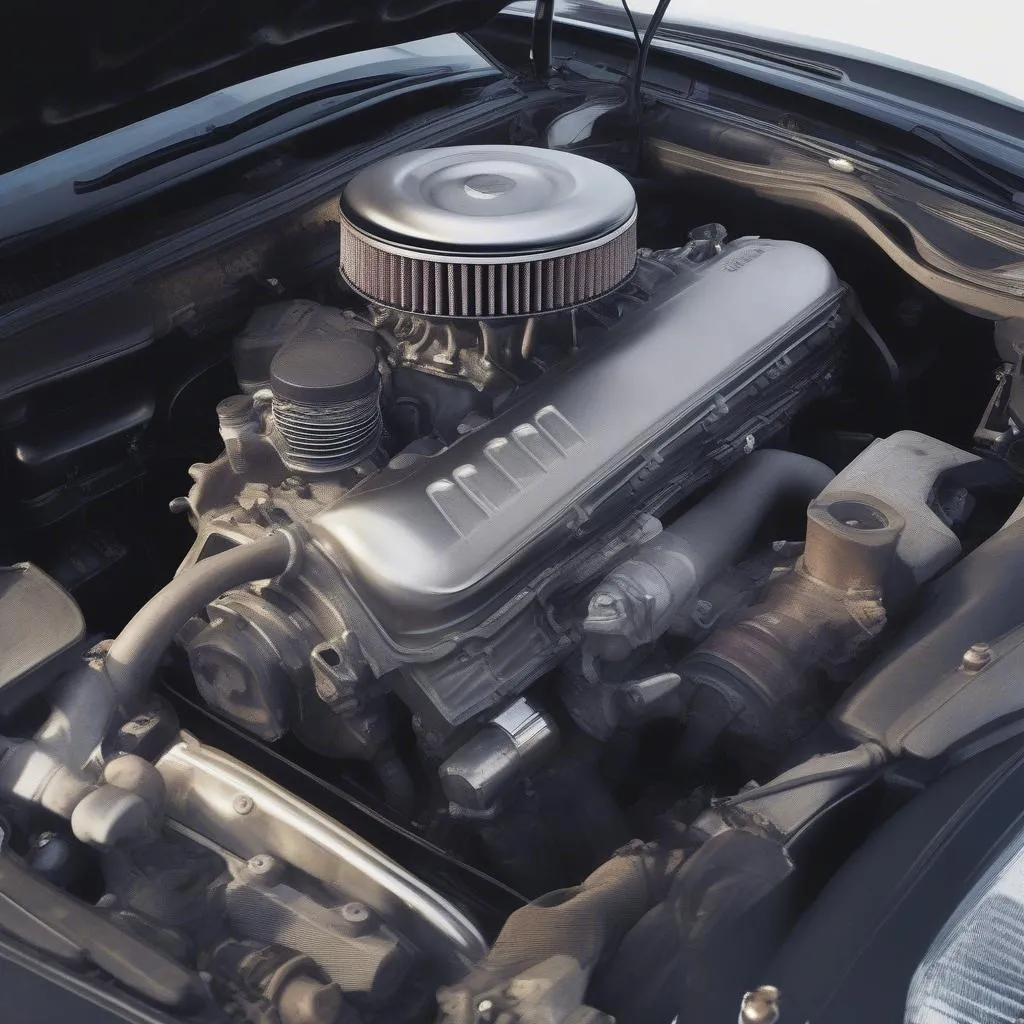Have you ever been driving down the road, enjoying the peaceful hum of your engine, when suddenly a clicking noise startles you? It could be coming from the engine, the wheels, or even the dashboard. This unsettling clicking sound can be a sign of various underlying problems, ranging from a minor annoyance to a serious issue that requires immediate attention.
Understanding the “Clicking Noise Car” Dilemma
The “Clicking Noise Car” issue can be a perplexing one for car owners, as the sound can manifest itself in different ways. A mechanic might describe it as a “ticking”, a “tapping”, a “rattling”, or a “clunking” sound. But what causes this clicking noise, and how can you troubleshoot it?
From a Mechanic’s Perspective:
A skilled mechanic understands that pinpointing the source of a clicking noise can be like solving a puzzle. The mechanic will need to consider factors like the location of the noise (engine, wheels, suspension), the frequency of the noise (constant, intermittent), and the conditions under which it occurs (acceleration, deceleration, turning).
From a Technical Standpoint:
The clicking sound is often the result of mechanical components moving against each other, causing friction. The “clicking” noise can also be generated by an electrical issue, a loose part, or even a problem with the fuel system.
From an Economic Perspective:
A clicking noise car can be a financial burden. Ignoring the issue could lead to more costly repairs down the road, especially if the problem worsens and causes damage to other components.
Unraveling the Mysteries: What Could be Clicking?
There are numerous potential culprits behind a clicking noise in your car. Here are some common scenarios:
1. Engine Clicking: The Heart of the Matter
 engine-clicking-noise
engine-clicking-noise
- The Lifter Tick: A worn or faulty hydraulic lifter can cause a clicking sound that varies in frequency with engine speed.
- The Piston Slap: If there’s excessive clearance between the piston and cylinder wall, the piston can slap against the cylinder walls, creating a clicking or knocking sound.
- The Timing Chain: A loose or worn timing chain can produce a clicking sound, especially during acceleration or deceleration.
2. Wheel Clicking: Rolling Through Trouble
- Loose Wheel Bearings: Worn or loose wheel bearings can cause a clicking or grinding sound, especially when turning or driving over bumps.
- Suspension Problems: Worn or loose suspension components such as ball joints, control arms, or tie rod ends can make a clicking sound when the car goes over bumps.
3. Clicking Sounds from Other Areas
- Fuel System Issues: A clicking noise from the fuel system might indicate a problem with the fuel pump, injectors, or fuel lines.
- Electrical System Glitches: Electrical components like relays, solenoids, or even the starter motor can create clicking noises.
- Dashboard Clicking: A clicking sound from the dashboard area could be related to the air conditioning system, the instrument panel, or even the steering column.
How to Diagnose and Fix the Clicking Noise
-
Listen Carefully: Pay attention to the location, frequency, and conditions under which the clicking noise occurs. This can help you narrow down the potential causes.
-
Visual Inspection: If possible, visually inspect the area where the noise is coming from. Look for loose parts, worn components, or anything that seems out of place.
-
Diagnostic Scan: If the clicking noise is related to a specific system, consider using a diagnostic tool to scan for error codes.
-
Professional Evaluation: If you can’t identify the cause of the clicking noise, it’s best to take your car to a qualified mechanic. They can diagnose the problem and provide a solution.
Other Related Concerns:
Q: How do I know if my car’s clicking noise is serious?
A: If the clicking noise is accompanied by other symptoms like a loss of power, a decrease in fuel efficiency, or a strange smell, it’s crucial to take your car to a mechanic immediately.
Q: What are some common causes of clicking noises in older cars?
A: Older cars are more prone to clicking noises due to wear and tear on mechanical components. Common causes include worn engine lifters, loose suspension components, and worn brake pads.
Q: Can I fix a clicking noise myself?
A: While some minor clicking noises can be fixed with basic DIY repairs, it’s generally recommended to seek professional help, especially if you’re unsure of the source of the problem.
Q: How much does it cost to fix a clicking noise in a car?
A: The cost of fixing a clicking noise can vary depending on the cause, the severity of the problem, and the labor costs in your area.
What to Do Next:
If you’re experiencing a clicking noise in your car, don’t ignore it! Get it checked out by a trusted mechanic as soon as possible. Early detection can prevent major problems and save you money in the long run.
To schedule a consultation with our expert technicians, please contact us via WhatsApp at +84767531508. We offer 24/7 support for your car’s diagnostic needs.
Are you curious to learn more about car maintenance? Check out our other articles on:
- https://techcarusa.com/check-engine-light-on-car-wont-start/
- https://techcarusa.com/car-making-noises-when-off/
- https://techcarusa.com/tapper-chevy-cars/
Please share your experiences with clicking noises in the comments section below!